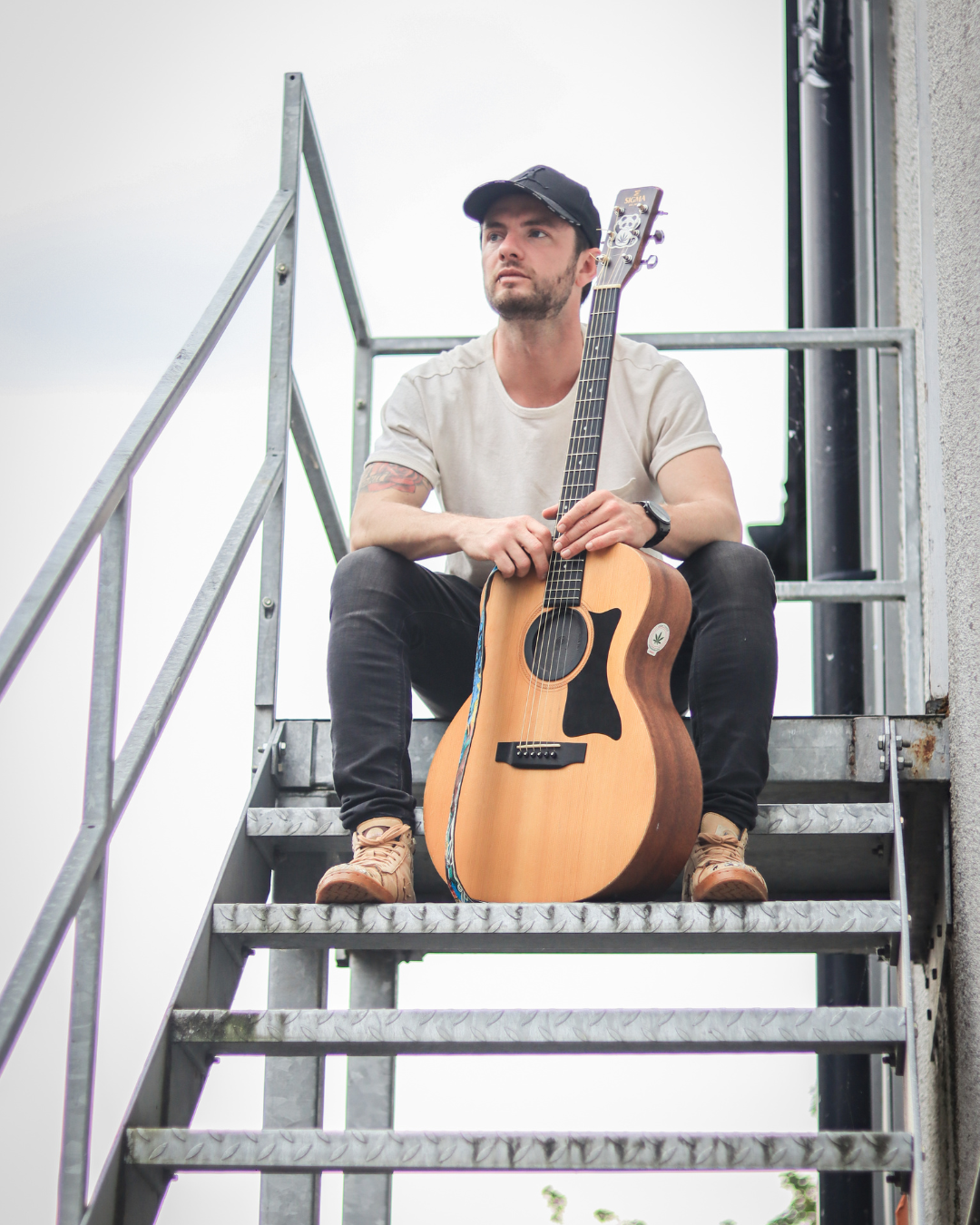


Tommy Alfred catches up with the Burnley based musician.
Sophie Loren once said, ‘You do not become a star, you are born a star. A star is born with that indefinable extra something.’
One such rising star, James ‘Jammy’ McKenna, born 1990 in the market town of Burnley, twinkled bright in the fields of musical aspiration where bands of the day such as Eminem, Snoop Dogg, Linkin Park, Blink-182 and Oasis, set his talents in motion. At the age of 12, Jammy was beginning to find his own style, and it wasn’t long before he purchased his first guitar, writing his own music and lyrics. Over those early years, his repertoire extended with the rap scene, and he combined these musical passions and talent to playing rap on an acoustic guitar, writing lyrics from his personal recollections and heart-breaking experiences. This has become what is simply and uniquely Jammy: that “indefinable extra something” that belongs in the trails of a shooting star.
From his late teens to mid-20s, Jammy’s songs have lamented emotionally sensitive truths, mental anguish and battles with inner demons and giant monsters. It seems the more Jammy suffered, the more poignant and indicative his music has become. However, there is also a spiritual edge to many of his songs that bring hope and healing to his personal stories of struggle: suicide, self-harm, addictions, depression, and other mental tortures. Jammy says he ‘doesn’t believe we are the penultimate thing in the universe. There is suffering. There is God. There is hope’.
He describes himself as a bit of a lone ranger and free spirit who likes his own company. He bought his second guitar which he dragged around Thailand, working in bars, travelling, meeting a host of people along the way, hearing their stories. At 26, Jammy returned to England, leaving his beloved guitar hanging on the wall in a reggae bar in Rasta Mountain, Patong.
His journey brought him back to Burnley - you may have witnessed him gracing the open-mic nights around town. He humbly accepts the accolades, and there are plenty. He also learns from the critics and understands those who might be offended by his hard-hitting words that churn up dark mental constitutions that are relevant not only to his own sufferings, but words that will no doubt disturb the sturdiest hearts of his audience. But Jammy is insistent that his words are meant to relate and not to trigger an emotional backlash.
Recently, Jammy has just returned from further ventures abroad in Lyon and Barcelona, where he joined the local busker circuit, played at open mics and graced the chilled lounge scene. He’s currently working at Eight at Gazegill, Gisburn, and feels settled, still enjoying his music which he’s developing further by learning the piano: a truly gifted musician with every reason to be proud of his achievements so far.
His album, Bars of a Scarred Heart, is yet to be appreciated, but you won’t find him on any social media platforms. In that authentic true-to-character determination, Jammy refuses to be lost in the milieu of attention-seeking fame. He doesn’t need, or want, that kind of promotion. He believes the only way is the traditional way with local backstreet producers, and he has already piqued the interest of one such person in Cura Rankin (Bruno/Aguilera), who is very interested in Jammy’s style of music and his songs on adversity.
Jammy says, ‘It takes a long time to work through the emotions; it takes a short time to write the words.’
He frames this melancholic thought with the illustration that each song, when completed, is bottled and labelled. Each bottle in his metaphorical bar has a different taste because of all his experiences and battles.
Jammy is an extremely likeable guy: intelligent, difficult to tie down but full of self-belief. He is not a star in the making, he is already here, and with his own style of rap guitar, and learning the piano, he has the tentative ear of the public and the world at his fingertips.